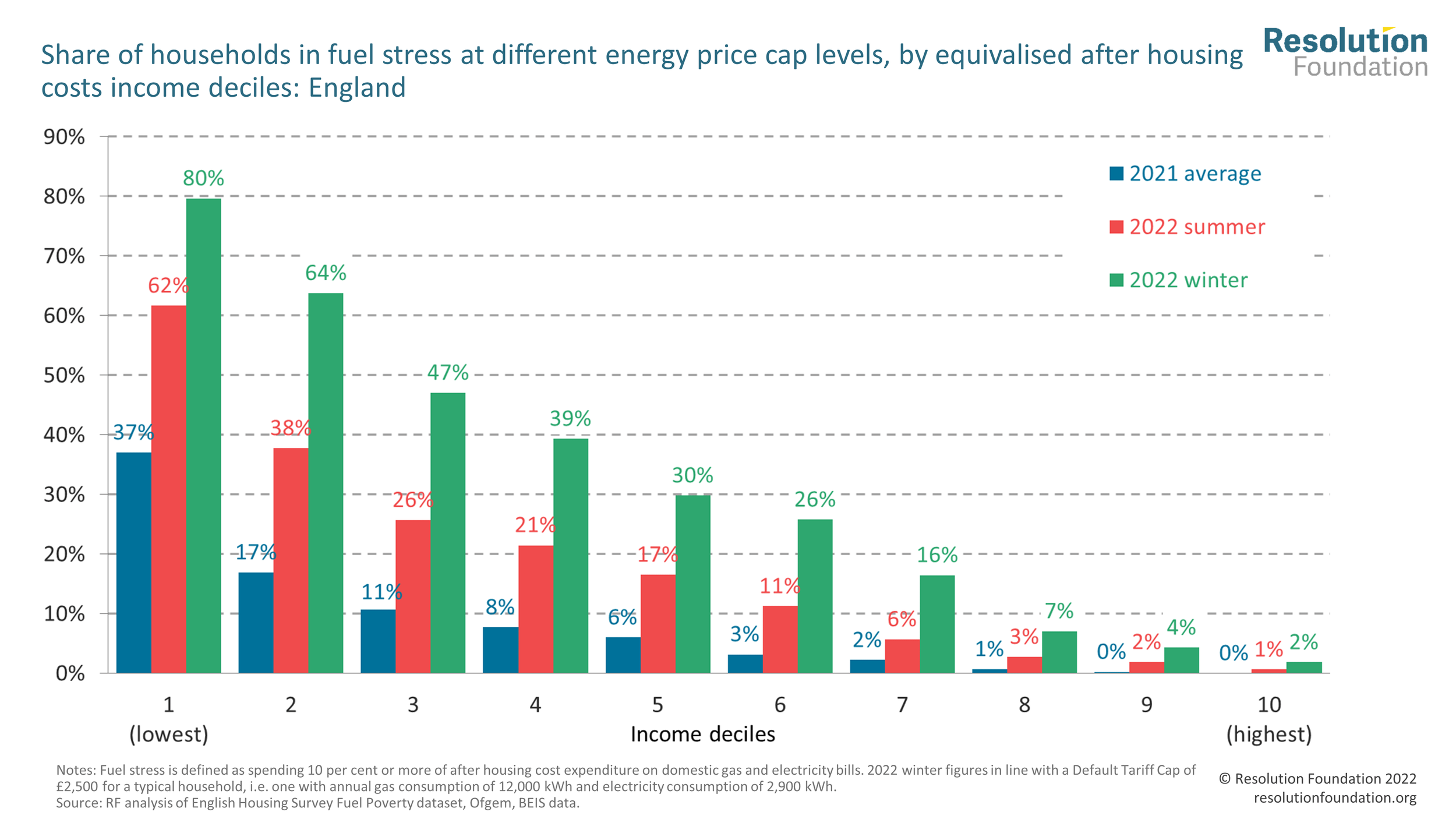The Cost Of Living Crisis Explained
Image credit: iStock
Last Friday (1 April 2022), marked a day where some of everyday life’s basic necessities saw a stark price hike in the United Kingdom - from the larger necessities of rents, gas and electricity to the smaller basic necessities of food. As the latter continues to rise, the former is set to go up again for energy bills in the autumn.
Inflation is advancing toward 8 per cent, council tax increases, prices for petrol has risen by 50p per litre since January 2021 and the United Kingdom’s energy price cap is set to surge by another £600-£800 later this year in October. Thus, we are left with the harshest drop in standards of living since records first began in 1956.
If standard energy bills were to increase to £2,000 a year, the poorest third of households would have to spend at least 10 percent of their income on energy bills alone. Additionally, this third will also suffer most with fuel stress if energy bills continue rising.
But why is there a cost of living crisis?
Regulation
Thirty UK energy suppliers have gone bust in recent months. The price of managing their homeless consumers are averted onto household bills. Therefore, it leads to the questioning from some about why so many of these energy supply companies were allowed to flourish only to be decimated by increased wholesale prices.
Environmental cautions
The increased popularity in the green agenda - exemplified in objectives such as the United Nations Sustainable Development Goals and the 2022 Intergovernmental Panel on Climate Change (IPCC) Report - means that there is a mass movement towards renewable energy sources to produce electricity instead of the UK’s traditional electric production through burning fossil fuels in power stations. For example, solar and wind power to replace older power stations, especially those run on coal fired power plants being shut down as a knock on effect. However, renewable energy has an issue of being able to be sufficiently mass produced, thus the reliance on gas remains which is becoming exponentially more expensive.
Weather
The 2020/2021 winter was unexpectedly colf, especially in certain Asian regions. Thus, this led to a high demand for energy - thus impacting supply which eventually galvanised the surge in prices in international wholesale markets. The cost of gas has been exponentially increasing since late 2021.
COVID-19
The pandemic caused mass disruption to the global economy. Not only in a health (infection) and social (social distancing, restrictions) aspect but also that of the economy. The ruin of travel, entertainment, transport, leisure and hospitality industries. Therefore, this economic weakness meant that the UK was even less prepared to tackle the cost of living crisis.
Economic revival
As the pandemic receded, sectors such as that of manufacture and distribution resurged, thus leading to a further increase in demand for energy and more competitive upwards pressure on prices.
Supply Chains
The short supply of lorry drivers and fuel has a subsequent effect on supply chains because when the cost of distribution rises, so does the cost of goods. An example of this is that it now costs £15,000 to ship a container from Asia to the UK, when before it only cost £3,000.
Agriculture
Food production and farming are heavily reliant o energy and one of its main consumers, therefore serving as a source of cost pressure. Fertilisers, a key element to farming and food production, use large amounts of energy to be produced. This is another source of cost pressure. The secondary steps to such farming and food production is the distribution of the goods themselves - there needs to be an affordable and efficient system of distribution which, as aforementioned, has been on the decline in such characteristics. Farmers are also left to pay higher wages to attract more workers after COVID-19 and its restrictions. Consequently, this results in higher prices of goods due to farm-gate inflation.
The prices of commodities
Raw material prices have increased due to the above mentioned issues of distribution and transport costs escalating, thus inevitably contributing to inflation across sectors. Also crisis in Eastern Europe where a significant portion of global wheat supply and vegetable oil is produced will undoubtedly lead to greater inflation effects.
By Saffron-Lucia Gilbert-Kaluba



